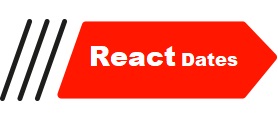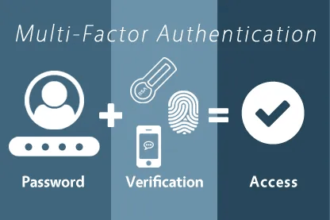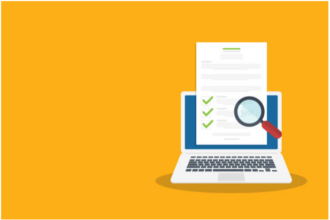Credit cards are more than just plastic pieces of convenience; they’re powerful financial tools that can help you manage expenses, build credit, and unlock opportunities. But what happens if you’re not currently earning a traditional income? Many people wonder if they can still qualify for a credit card despite their situation. If you’ve been asking yourself, “https://creditospresta.com/puedo-solicitar-una-tarjeta-de-credito-sin-ingresos?” you’re not alone. Understanding the ins and outs of credit cards is essential for making informed financial decisions. Let’s dive into this topic and explore your options!
What is a credit card and why are they important?
A credit card is a financial tool that allows you to borrow money up to a certain limit for purchases or cash advances. Unlike debit cards, which draw directly from your bank account, credit cards offer the flexibility of paying later.
They play an important role in personal finance. With responsible use, they can help build your credit history and improve your credit score. This opens doors to better loan rates and mortgage approvals down the line.
Additionally, many credit cards come with perks like rewards points, cashback offers, and travel benefits. These incentives can make spending more rewarding while also providing essential protections against fraud.
In emergencies, having a credit card can be invaluable. It gives you immediate access to funds when unexpected expenses arise. Understanding how these cards work is key to leveraging their advantages effectively.
Common requirements for credit card applications
When applying for a credit card, applicants typically face several common requirements. Lenders want to assess your financial stability and ability to repay debts.
First, age matters. Most issuers require you to be at least 18 years old. This ensures that you’re legally able to enter into a contract.
Next is identification. A government-issued ID or Social Security number is usually necessary for verification purposes. This helps lenders confirm your identity and check your credit history.
Credit score plays a big role too. Many cards have minimum score thresholds, which vary by issuer and card type. A higher score opens doors to better rates and rewards.
Additionally, proof of income is often essential. It demonstrates your capacity to manage monthly payments effectively. Even if you don’t earn a traditional salary, showing alternative income sources can help in the process.
Residency status may also come into play as many banks prefer applicants who are legal residents or citizens of the country where they apply.
Is it possible to get a credit card without income?
Obtaining a credit card without a traditional income can be challenging, but it is not impossible. Many financial institutions require proof of steady income as part of their application criteria. However, alternatives exist for those who might not fit this mold.
Some issuers consider other sources of revenue, like freelance work or investments. If you have savings or assets, these may bolster your application as well.
Certain secured credit cards allow individuals with no income to deposit funds upfront that act as collateral. This minimizes risk for the lender while giving you the chance to build credit history.
Additionally, becoming an authorized user on someone else’s account can also provide access to credit benefits without needing direct income verification. Exploring various options can open doors even when traditional paths seem closed.
Alternative options for those without traditional income
For those without a traditional income, exploring alternative options can open up new pathways to financial resources. Consider applying for a secured credit card. By depositing money as collateral, you can enjoy the benefits of a credit card while building your credit history.
Another option is becoming an authorized user on someone else’s account. This allows you to benefit from their good payment history without being responsible for payments.
Peer-to-peer lending platforms are also worth exploring. Here, individuals can borrow from others online, often with flexible terms that don’t rely strictly on income proof.
Freelancing or gig work offers additional avenues too. Even if it’s part-time or sporadic, it demonstrates earning potential and may qualify you for certain cards down the line.
Consider local community programs that offer financial education and support; they might help identify opportunities tailored to your situation. https://creditospresta.com/puedo-solicitar-una-tarjeta-de-credito-sin-ingresos
Steps to take when applying for a credit card without income
Applying for a credit card without a traditional income requires careful planning. Start by assessing your financial situation. Gather any alternative sources of income, such as investments or freelance work.
Next, research credit cards that cater to individuals with limited income options. Some banks offer secured credit cards that require a cash deposit as collateral. This could be an excellent way to start building your credit history.
Prepare documentation meticulously. Even if you lack regular employment, provide proof of any consistent earnings or support from family members if applicable.
Consider adding a co-signer with better financial standing who can help strengthen your application.
Apply online or in person while being ready to explain your financial circumstances clearly and confidently during the process. https://creditospresta.com/puedo-solicitar-una-tarjeta-de-credito-sin-ingresos
Tips for building credit with or without a traditional job
Building credit can feel daunting, especially without a traditional job. Start by obtaining a secured credit card. This requires a cash deposit but helps establish your credit history.
Another option is to become an authorized user on someone else’s account. Make sure they have good credit habits, as this will reflect positively on your report.
Paying bills on time is crucial. Consider setting up automatic payments for utilities or rent, which can also boost your score when reported to the agencies.
Utilize alternative data services that consider factors like rental payments and subscriptions. These can help you build credibility without needing traditional income sources.
Stay informed about your credit report. Monitoring it regularly allows you to catch errors early and understand how different actions affect your score.
Conclusion: Making informed decisions about credit and finances
Making informed decisions about credit and finances is essential for achieving financial stability. Understanding what a credit card is and its importance can help you navigate the complexities of personal finance. While traditional income often serves as a key requirement in securing a credit card, various options exist for those without it. Evaluating alternative approaches can open doors to building your credit history.
Applying for a credit card without income may seem daunting, but there are steps you can take to enhance your chances of approval. Consider providing proof of other forms of income or assets that demonstrate your ability to manage debt responsibly. https://creditospresta.com/puedo-solicitar-una-tarjeta-de-credito-sin-ingresos
Moreover, focusing on strategies that build your credit profile—whether through joint accounts or secured cards—can create opportunities even if you’re not in traditional employment. Remember, cultivating good financial habits now will benefit you in the long run.
Navigating the world of credit requires knowledge and caution—but with the right information at hand, it’s possible to make sound choices that align with your financial goals.







